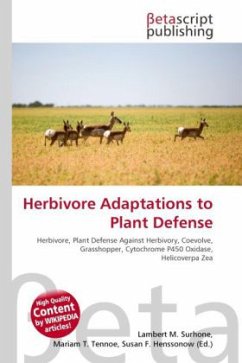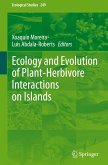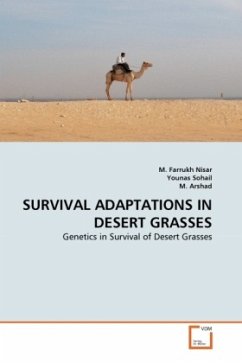High Quality Content by WIKIPEDIA articles! Herbivores are dependent on plants for food, and have coevolved mechanisms to obtain this food despite the evolution of a diverse arsenal of plant defenses against herbivory. Herbivore adaptations to plant defense have been likened to offensive traits and consist of those traits that allow for increased feeding and use of a host. Plants, on the other hand, protect their resources for use in growth and reproduction, by limiting the ability of herbivores to eat them. Relationships between herbivores and their host plants often results in reciprocal evolutionary change. When an herbivore eats a plant it selects for plants that can mount a defensive response, whether the response is incorporated biochemically or physically, or induced as a counterattack. In cases where this relationship demonstrates specificity (the evolution of each trait is due to the other), and reciprocity (both traits must evolve), the species are thought to have coevolved.
Bitte wählen Sie Ihr Anliegen aus.
Rechnungen
Retourenschein anfordern
Bestellstatus
Storno








